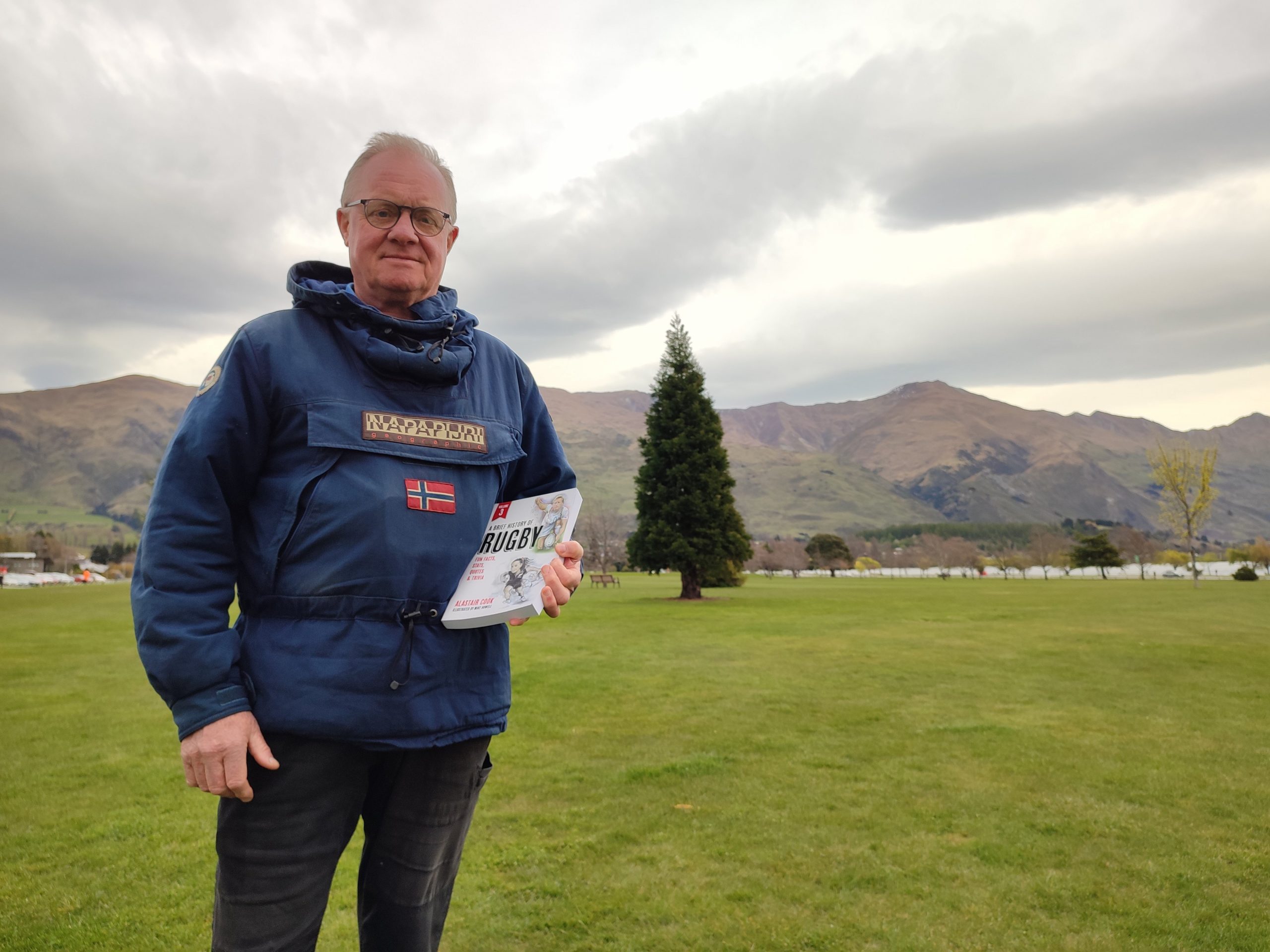For Alastair Cook, it started with a quote.
“87 Rugby World Cup. A journalist was speaking to Michael Jones. You’re probably familiar with him. Devoutly religious, refused to play on Sundays.
“The journalist said to him, ‘Mr Jones, you call yourself a Christian. Why do you tackle so hard?’
“And Jones’ response was ‘The Good Lord said it is better to give than to receive’.
“And I thought that’s really cool. That’s a good party line, you know. And that’s what started it.”
Cook is the author of A Brief History of Rugby, a collection of facts, quotes and trivia that marks the culmination of a 14-year passion project diving into the history of his favourite game.
The Wa ¯naka local and former logistics officer for the United Nations’ disaster response arm said he began collecting rugby trivia as a way to keep himself busy while out in the field, and hadn’t always intended to publish his work.
Now, he hopes the book will reach everyone from the hardcore fan to those who have never watched a match in their life.
“Those who have bought it have picked it up and within minutes they’ve got a smile on their face and they’re not even real big rugby fans.”
So far, Cook has completed three volumes for the series, covering the sport’s history from its inception in 1823 through to the present day.
He was releasing the third volume first as it covered the most recent two decades worth of rugby history.
“People will be familiar with the players and probably recall certain events because it’s only within, you know, the last 23 years or 22 years.
“They’ll be able to relate to it quite easily, and then if they like the style of the book, then that should encourage them to read volume one and two.”
When it came to research, Cook said online newspaper archives proved incredibly useful, as well as a library of more than 500 books he has amassed on the subject.
His work also saw him reaching out to verify facts with those who had lived through certain events, including Keith Quinn and the late sports broadcaster Peter Sellers.
Cook said the World Wars were the most difficult periods to research, simply due to the lack of reporting on matches played at the time.
“I know it happened, but trying to find information on it is hard.”
The game’s earlier days also proved to be his favourite period to research due to how removed they were from the modern day.
“In Yorkshire alone, in 1884, 174 people died from rugby injuries. It’s hard to come to terms with.
“The modern game has really been paid a visit by the health and safety officer.”
Cook said it had been important to him that the book had an international scope, particularly due to the humour often on display from teams such as Ireland and Wales.
“So much of great content would be left out if it wasn’t,” he said.
‘‘For example, when Willie Duggan was running on to the field some cigarettes dropped out of his pocket.
He picked them up, gave them to the referee and said, ‘‘well, I don’t like oranges at halftime’’.’’





